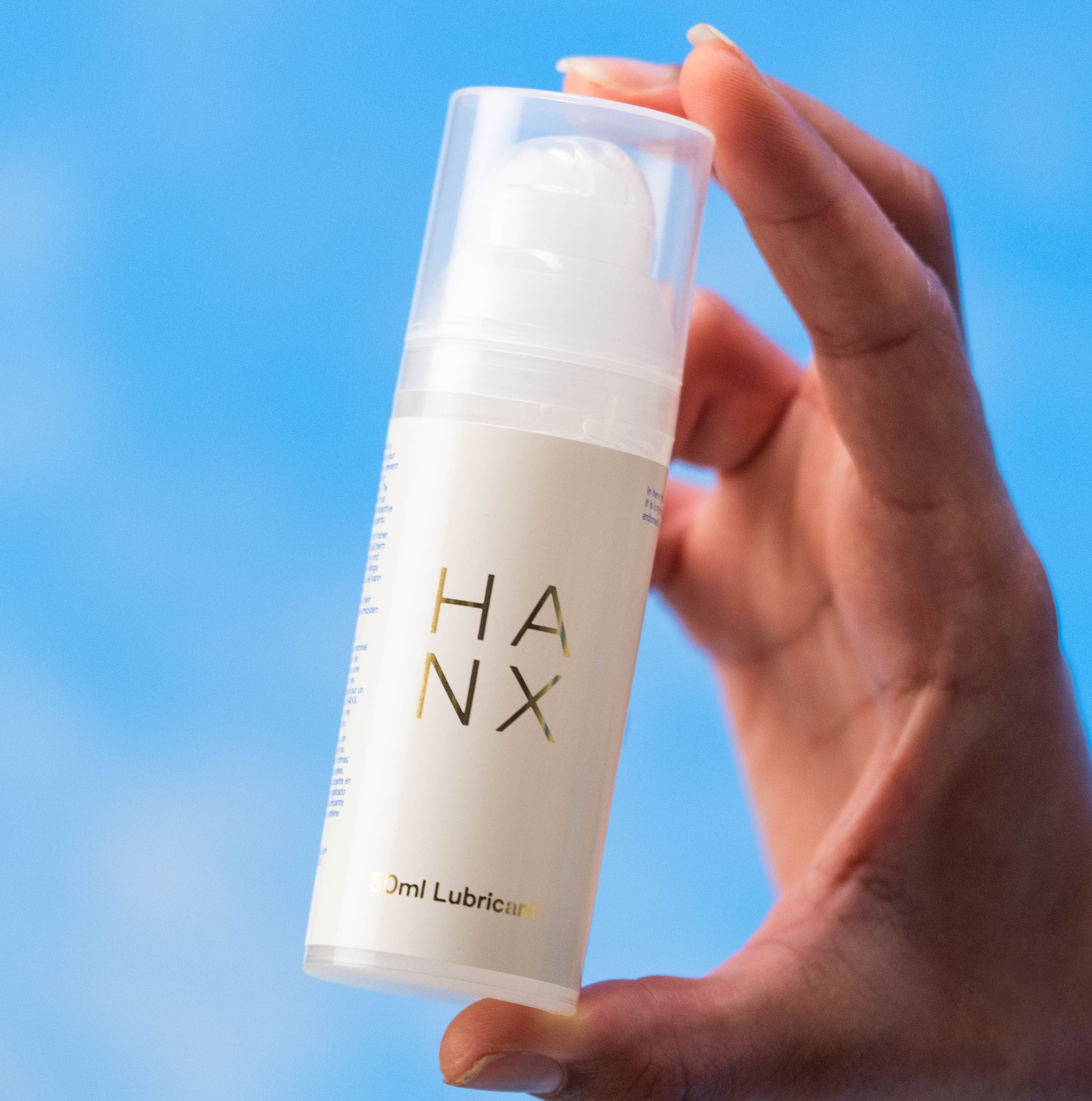An Obstetrics Expert's Guide To Choosing The Right Pregnancy Supplement
Oh, baby. Expecting your first child or planning doing things differently next time around? Pregnancy can be a major life stage, filled with everything from excitement to angst to anticipation. It can also come with a whole lot of questions, especially around how best to take care of yourself and your little one. With so many super-parents on TikTok, endless supplement aisles and family advice handed down, it can be overwhelming to sift through it all and find the right nutritional support to rely on during your pregnancy. Fear not! Our Co-Founder, Dr Sarah Welsh, to the rescue. Before co-founding HANX she worked as a NHS doctor, specialising in gynaecology and obstetrics, and is passionate about all things pre (and post)-natal health.
Whilst pregnant with her first baby, she realised there simply isn’t a supplement on the market that provides all the right nutrition without all the nasties (bulking agents, added sugars, flavours and colours and fillers) packed in, too. Working with our trusted nutritionist, Shona Wilkinson, she developed HANX Pregnancy Support, a new all-natural nutritional supplement. Here, she takes a closer look at some of the key ingredients that we knew we had to include to support mum and baby best:
Vitamin D3
“Let's start with Vitamin D3. This vitamin plays a crucial role in immune function and inflammatory responses and is needed for the growth of baby’s bones and teeth, too. Having low vitamin D status during pregnancy can contribute to growth delays, a higher rate of miscarriage, premature birth, and an increased likelihood of the infant developing asthma. Making sure to top up your levels of Vitamin D3 during pregnancy can reduce your risk of experiencing high blood pressure (hypertension) and improve mental skills in your baby, too.”
Folic Acid
“One of the most well-known nutrients required during pregnancy, 400 mcg of Folic Acid is recommended to be taken per day, which we made sure is present in Pregnancy Support. One of the reasons you’re advised to take it is that it’s crucial for reducing the risk of neural tube defects and premature birth, too.”
Vitamin E
“This essential nutrient is a powerful antioxidant that helps protect tissues from oxidative damage, where there’s an imbalance between free radicals and antioxidants in your body. Vitamin E has been associated with a decreased risk of wheezing in infants and a decreased risk of heart defects.”
Vitamin K2
“This vitamin is required for normal blood clotting processes and the transport of calcium into the bones of the fetus. Vitamin K deficiency is common during pregnancy, so supplementation is advised to build up levels. Specifically, Menaquinone is the best form of Vitamin K for bone health, which we’ve made sure is used in Pregnancy Support.”
Vitamin C
“You might be sipping on your orange juice every morning, but don’t take it for granted that your Vitamin C levels are tip top. This essential nutrient is needed for the formation of collagen, and plays a crucial role in the growth of fetal bones, skin, blood vessels, and joints. Low intake of Vitamin C has been linked to premature birth, pre-eclampsia, and urinary tract infections (ouch) during pregnancy.”
Vitamin B1
“You might have heard of Vitamin B1, which is also known as Thiamine. Your body’s requirement of Thiamine is increased during pregnancy, as it’s needed to support baby’s developing nerve and brain cells, and brain development, too. Some expectant parents might find themselves at risk of gestational diabetes, and Vitamin B1 can help avoid this.”
Vitamin B2
“Vitamin B2, also known as Riboflavin, is a vitamin needed to help baby’s muscle and nerve development, as well as eye development, too. It also plays an important role in thyroid function and may prevent severe preeclampsia and hypertension.”
Vitamin B3
“Vitamin B3 (Niacin) is very important for supporting baby’s growth and development. A deficiency in Vitamin B3 is associated with increased rates of congenital abnormalities and increased risk of birth defects such as spina bifida.”
Vitamin B6
“Feeling the effects of morning sickness? Vitamin B6 deficiency is often associated with nausea and vomiting during pregnancy, alongside potential risk of preeclampsia and low birth weight.”
Vitamin B12
“This vitamin is essential for the creation of red blood cells, new DNA, and the formation of myelin, the outer coating of nerve and brain cells. Babies who don’t receive enough Vitamin B12 in the uterus are at a higher risk of low birth weight, neural tube defects, heart defects, and childhood onset diabetes.”
Biotin
“This nutrient is needed for the creation of new cells and fetal growth, as a biotin deficiency during pregnancy may lead to fetal growth restriction.”
Ready to take the next step on your journey? Get set up with Pregnancy Support here - and get in touch if you have any questions about babyhood and beyond.
Want more?
- How soon is too soon to have sex post-birth? Expert Clio Wood answers.
- Can you still have sex when you’re pregnant? Find out now.
- Reignite that mojo: treat yourself to our Postpartum Pleasure Bundle.






















